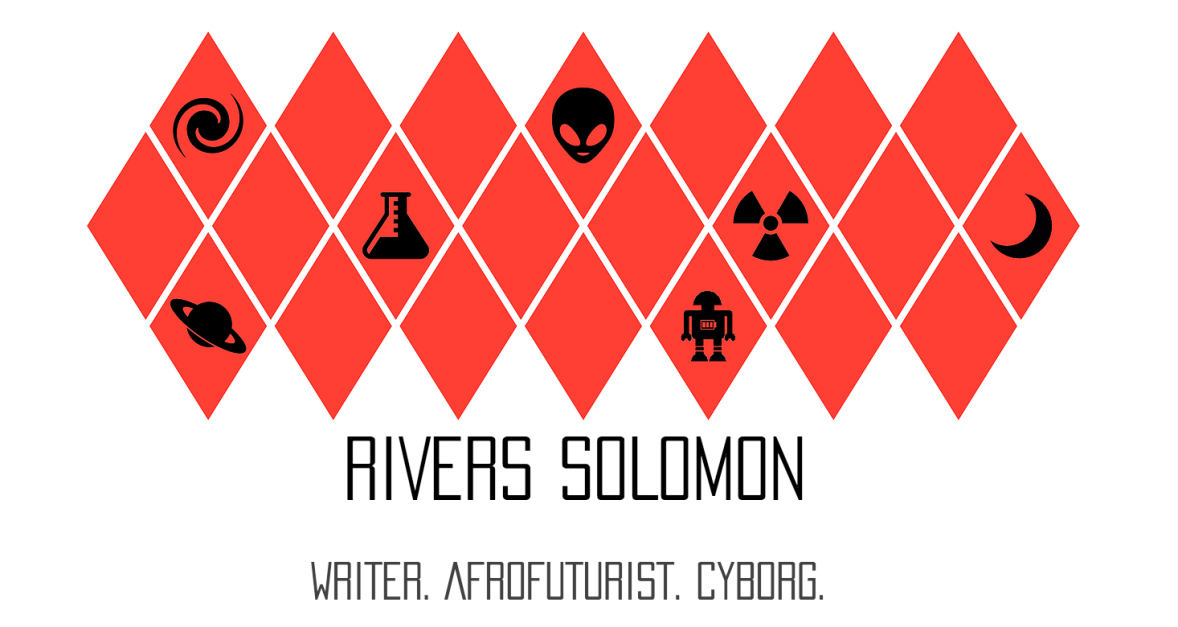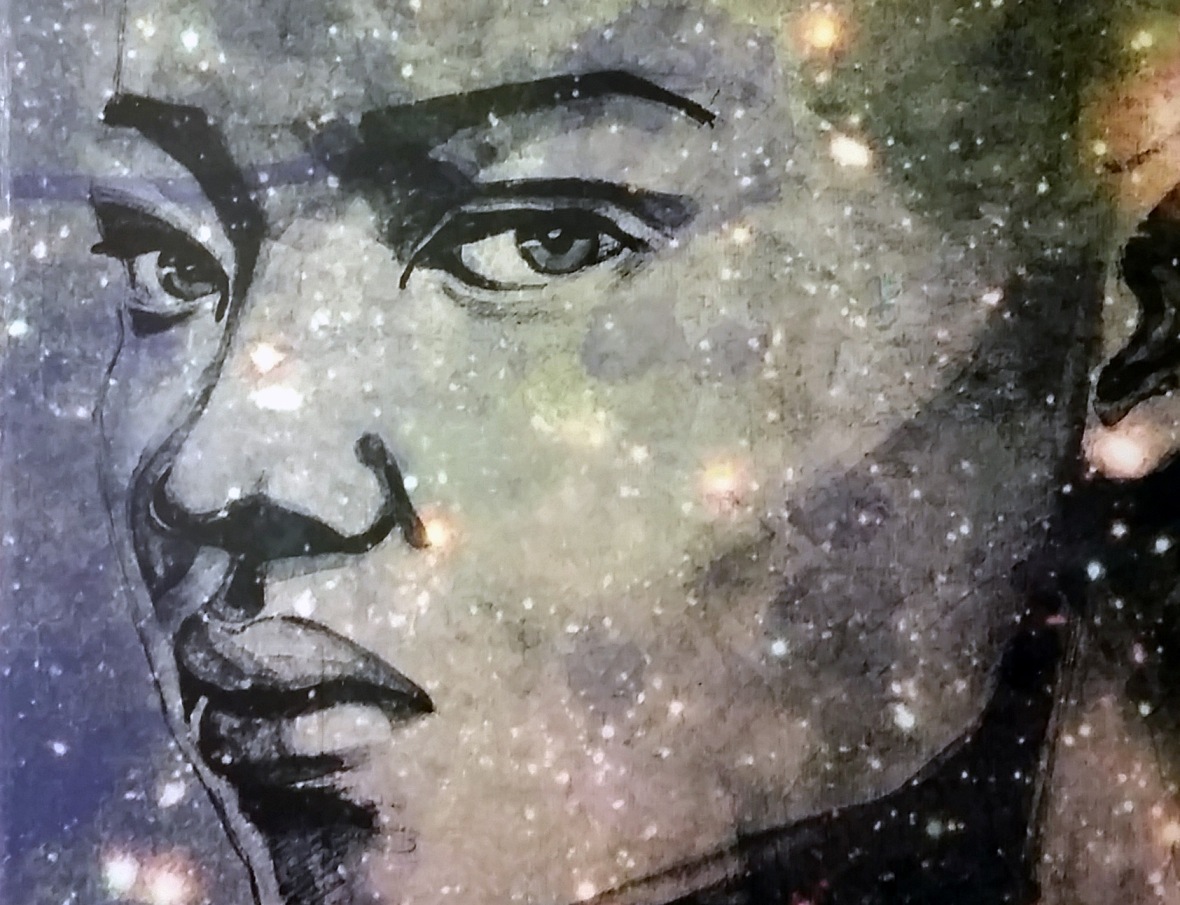Greetings, friends. Where does the time go? This week we start our fourth and final theme for this season of Black Light: Afrofuturism. With the recent success of the movie “Black Panther,” (which we’ll get to later this week), you may have heard the term flying around lately.
Ytasha Womack has succinctly described Afrofuturism as “the intersection between black culture, technology, liberation and the imagination, with some mysticism thrown in, too. It can be expressed through film; it can be expressed through art, literature and music. It’s a way of bridging the future and the past and essentially helping to reimagine the experience of people of colour.” It’s important to understand that Afrofuturism isn’t just a genre — it’s a framework for thinking about Black liberation, and imagining the possibilities that liberation might bring. In a world where the lives of Black people have been subjected to the constant policing (literal and figurative) of white supremacy, Afrofuturism is a lens that elevates the imagination above and beyond these unwanted, externally-imposed constraints. Bitch Media had a great interview with Womack in 2013 that you should read, and Ravynn Stringfield has pulled some salient points from her book in the article “Afrofuturism for Beginners.”
To learn more about Afrofuturism, you can check out this short Powerpoint by @traser03 or watch this interview with Alondra Nelson, President of the Social Science Research Council and professor of sociology at Columbia University:
And hear from author Masi Mbewe about what it meant for her to find Afrofuturist books:
There are so many examples of phenomenal art, literature, music, fashion, and more coming out of the Afrofuturist movement. We’re excited to talk about a handful of them this week. Today’s topic is (another) book recommendation, in case our Du Bois book club wasn’t satisfying all your reading needs. And, fun side fact, Du Bois is also the author of Afrofuturist fiction. The Wikipedia summary of his short story “The Comet” is: It discusses the relationship between Jim Davis (a black man) and Julia (a wealthy white woman) after a comet hits New York and unleashes toxic gases that kill everyone except them.” In 2015, researchers found the unpublished “The Princess Steel” in Du Bois’ papers, the earliest of his speculative fiction. But I digress.
The book of the day is Rivers Solomon’s “An Unkindness of Ghosts.” Solomon’s website describes:

“Rivers Solomon is a dyke, a Trekkie, a wannabe cyborg queen, a trash princex, a communist, a butch, a femme, a feminist, a she-beast, a rootworker, a mother, a daughter, a diabetic, and a refugee of the Trans-Atlantic Slave Trade. They write about life in the margins, where they are firmly at home.”
They further describe themselves on their Patreon page: “With a focus on speculative fiction – sci-fi, fantasy, magical realism, fabulism, afrofuturism – I create stories that paint a future (and sometimes a past) where society’s most disenfranchised are front and center. I believe the histories of LGBTQ+ people, Black and Brown people, of disabled and sick people, of poor people, of women, are the stuff sci-fi is made of. We are Frankenstein’s monster, and we will make our pained roar heard.”
And that they do in “An Unkindness of Ghosts.” This book tore me apart. I am not the kind to make audible sounds when reading fiction, to cry, to swear at characters aloud. But this book hits so hard, digs so deep, and reverberates so loudly in my head and in my soul that I could not stop it. The Rumpus did a great interview with Solomon, including a spot-on summary of the book:
“An Unkindness of Ghosts imagines a future wherein the brutal racism and other systemic injustices of our society have outlasted humanity’s time on Earth. The blood-soaked soil of the United States is long gone, yet the horrors of the antebellum South are with us still, built into the architecture of the HSS Matilda, the spaceship where Aster, a badass black queer healer-surgeon-botanist-freedom fighter tries to decode the truth about her mother’s death.”
 The neurodiverse, gender-ambiguous Aster seeks answers about her past and the strange power outages that, last experienced when her mother died, have started up again. To do so, she navigates segregated spaces. The lower decks of the Matilda are filled with oppressed people of color who are forbidden free movement, terrorized at the hands of merciless guards, and forced to labor daily under the strange light of a man-made sun called “Baby.”
The neurodiverse, gender-ambiguous Aster seeks answers about her past and the strange power outages that, last experienced when her mother died, have started up again. To do so, she navigates segregated spaces. The lower decks of the Matilda are filled with oppressed people of color who are forbidden free movement, terrorized at the hands of merciless guards, and forced to labor daily under the strange light of a man-made sun called “Baby.”
It is slavery transposed into space, the horrors of the past and present extended into the future. Solomon has described it as “a book about how we survive.” And while Afrofuturism is focused on, well, the future, Solomon makes sure it is deeply rooted in history. (The very name of the spaceship, the Matilda, recalls the Clotilda, the name of the last known ship to bring enslaved people from Africa to the United States). As Solomon puts it:
“There’s no reason for a sense of history and tradition to get lost just because we’re turning toward the future. There’s room for African diasporic religious beliefs and magical systems to exist alongside fusion reactors.”
This book is phenomenal. It makes you look at the past — and the future — in a whole new way. It is jarring; it is tough. It is hope and it is rage. It is the book we needed at the time we needed it.
The very talented Amar El-Mohtar summed it best in her review of “An Unkindness of Ghosts”:
“What Solomon achieves with this debut — the sharpness, the depth, the precision — puts me in mind of a syringe full of stars. I want to say about this book, it’s only imperfection is that it ended. But that might give the wrong impression: that it is a happy book, a book that makes a body feel good. It is not a happy book. I love it like I love food, I love it for what it did to me, I love it for having made me feel stronger and more sure in a nightmare world, but it is not a happy book. It is an antidote to poison. It is inoculation against pervasive, enduring disease. Like a vaccine, it is briefly painful, leaves a lingering soreness, but armors you from the inside out.”
Read it.
Afrofuturism is new to me though I am old. But I really like Black Panther!
LikeLike